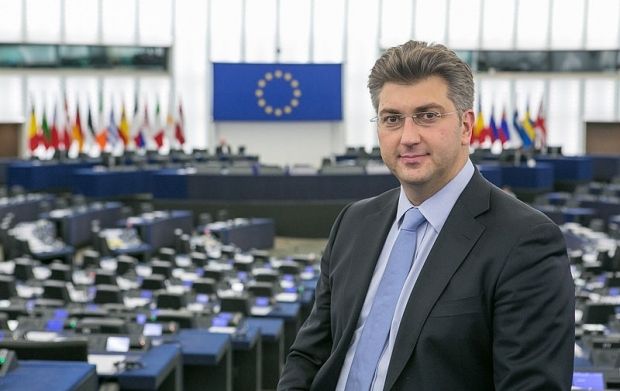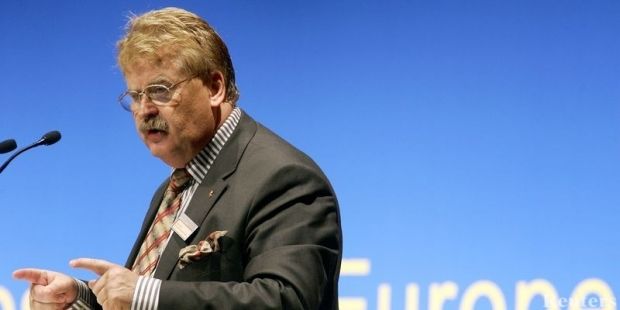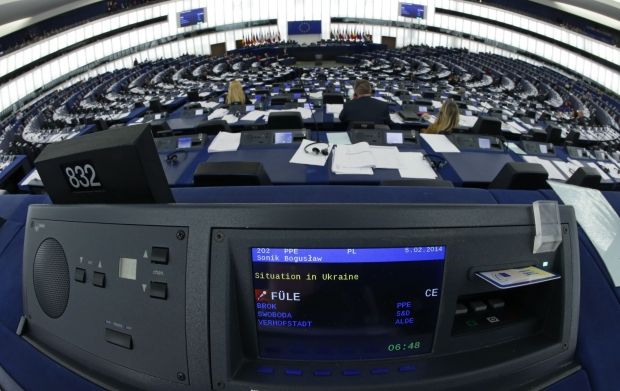
Member of European Parliament: Implementation of Minsk agreements depends on Moscow’s will
Andrej Plenkoviс, Croatian Member of the European Parliament, co-chairman of the EU-Ukraine Association Committee, tells in an exclusive interview with UNIAN of the new political season and EU-Ukraine relations.
Andrej Plenkovic is a Croatian lawyer, diplomat and politician. For over ten years, he has been head of Croatia’s official representation to the European Union, engaged in the process of his country’s European integration. In 2014, during snap parliamentary elections in Ukraine, he was a chief observer representing the European Parliament.
In an exclusive interview with UNIAN, Mr.Plenkovis talked about the importance of local elections in the context of decentralization. He also elaborated, whether the EP will take part in monitoring missions in October 2015, and also whether Ukraine can form the European agenda in a more positive context than just crisis management, as it is with Syria, Iraq and Lebanon.
What is your prognosis for this new political season?
In politics work continues despite seasons. Even though in August, the European Parliament is not meeting for official meetings or plenary, we continue following all developments on a daily basis. Situation in Ukraine is of course among top priorities.
The so-called "new season" in the European Parliament kicked off this Monday with the meeting of AFET (Foreign Affairs Committee) and unfortunately featured tragic events in Kyiv.
In the situation of an armed conflict and severe humanitarian catastrophe, the protection of human rights is of a crucial importance. Members of the European Parliament are closely following this topic: situation with IDPs, children, people who remain at the occupied territories and in Crimea.
MEPs confirmed their further support to Ukraine and its people.
We were reporting on what happened in July, but all our attention was drawn to the current situation in Kyiv. At the end of the AFET meeting with the absolute support of its members Mr. Brok and I issued a special statement regarding the situation in Kyiv. We deeply regret the violence displayed in front of the Parliament which led to the tragic death of already 3 young men and over 100 injured.

The process of decentralisation is crucial for Ukraine and its people and there we acknowledge the importance of the vote on the amendments to the Constitution of Ukraine. In this moment, it is crucial for all political forces in Ukraine to express full responsibility and remain united. The EU is fully supporting the process of decentralisation in Ukraine which is not only important as a commitment in the Minsk Agreement, but as a way to further modernize the country.
What will be on the EP’s agenda regarding Ukraine?
For the upcoming months the European Parliament´s agenda will be very busy on Ukraine. On 16 September we will mark the first anniversary of ratification of the Association Agreement by holding a special meeting of the EP delegation to Ukraine. My plan as a head of the Delegation to Ukraine is to hold meetings of Delegation on a monthly basis so that its members receive the most updated information on the situation in the country and the process of reforms.
The EP also received an official invitation to observe the local elections in Ukraine. Although in principle, the European Parliament is only observing elections held at the national level, the importance of Ukraine is such that it is very likely that we will be granted a right to go to Ukraine to observe the local elections as well. The decision will be taken soon, during the Conference of Presidents of the European Parliament.
The second meeting of the Parliamentary Association Committee (PAC) is foreseen for the first week of November 2015. Political groups and individual members hold various expert discussions and meetings related to the situation in Ukraine on a regular basis. Big piece of work will be dedicated to the implementation of the Memorandum of Understanding between the EP and the Verkhovna Rada, in particular the first stage - needs assessment mission which has already started its work in mid-August.
What is it about?
Memorandum of Understanding between the EP and Rada signed on July 3, 2015, in Kyiv is aimed at modernizing the Ukrainian Parliament’s work and assisting the new Rada in the elaboration and the timely and efficient implementation of the EU-oriented legislative reform agenda.
It is foreseen that the Needs Assessment Mission (NAM) leaded by former President of the European Parliament and well-known friend of Ukraine Pat Cox will last 4 months. The core of the mission is the EP’s special service dealing with democracy support. They will assess Rada’s needs in four fields: harmonization of legislations, legislative proposals, interaction between Parliament and the State in decision-making, and implementation of the Association Agreement. Ukrainian experts will also be invited to join the assessment mission. The first full scale mission of Pat Cox is planned for mid-September. At the end of the mission, a special report will identify a roadmap on internal reform and capacity-building for the Verkhovna Rada.
As I understand, Rada Speaker Volodymyr Hroisman seeks to use such cooperation to integrate the already-existing assistance and prepare the Ukrainian Parliament to the future EU membership. And we will contribute to this process. I will be in Ukraine this week. Mr. Cox will also visit Kyiv shortly.
It is also planned that the Ukrainian MPs will go on study visits to the EP; staff trainings and conferences will be organized for them to see how the European Parliament works, what the legislative procedure is and what the legislation is. independent and non-partisan parliamentary secretariat; exchange of good practices between EU Member States’ national parliaments and the Ukrainian Parliament) to assist the new Rada in the elaboration and the timely and efficient implementation of the EU-oriented legislative reform agenda.
Besides, there is an idea to hold a Ukraine Week in the European Parliament, but the first phase is assessment. We need to determine Rada’s strong and weak sides.

I believe that any Parliament, willing to actually work, needs to have special services that will support the work of the MPs, with detailed knowledge of legal aspects. All committees should have its own experts who would be aware of the newest updates in, let’s say, agricultural, transport or social policies, in trade. It all needs time and expertise.
If the so-called LPR and DPR conduct elections in a way they have already announced, what must be the EU’s response?
Last year, I was heading the monitoring delegation to [Ukraine’s] parliamentary elections. Illegal elections [on territories beyond government control] were held a week later – on November 2, which we have not recognized. Therefore, we are expecting the so-called LPR and DPR to bring [the elections] in line with the agenda and the schedule of legislative process of the Ukrainian authorities, and we will be insisting on it. We understand, this is not an easy task, so we also put pressure on Moscow so that it exercises its influence over the so-called DPR and LPR.
The whole process of implementation of the Minsk Agreements depends on the level of Moscow’s influence. If Moscow is willing for the Minsk Agreements to be implemented, then they will work. Therefore, I think that the local elections scheduled for October 25, are an important milestone for Ukraine’s stability, just like the Constitutional reform.
The first issue of the EU agenda today is the migration crisis. How can the fact that all attention is drawn to this influence the issue of resolving the conflict in eastern Ukraine?
There is a Middle East crisis, there is Iraq, Syria, Lebanon, the problem with migrants. But I don’t see Ukraine as a state that should compete for the negative context. I see Ukraine as a country that respects the ceasefire, reintegrates its territories and persistently implements EU-oriented reforms. This is how I see Ukraine.
I want Ukraine to appear on EU agenda in a more positive context than crisis management. This, I believe, is the sense of our Committee’s work.
Iryna Somer

